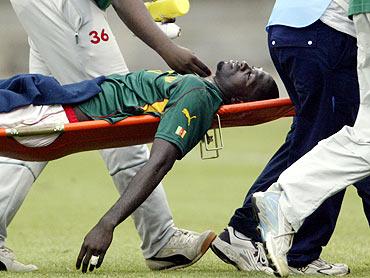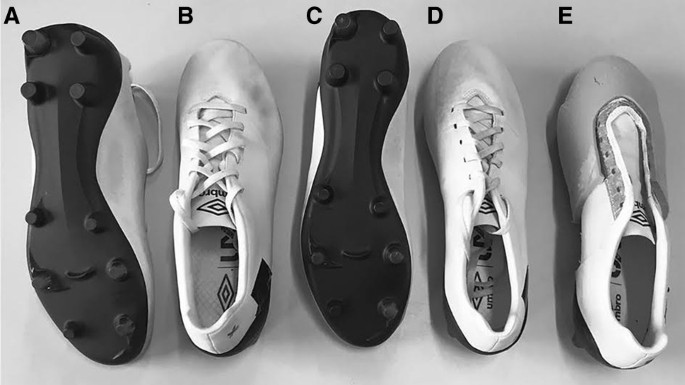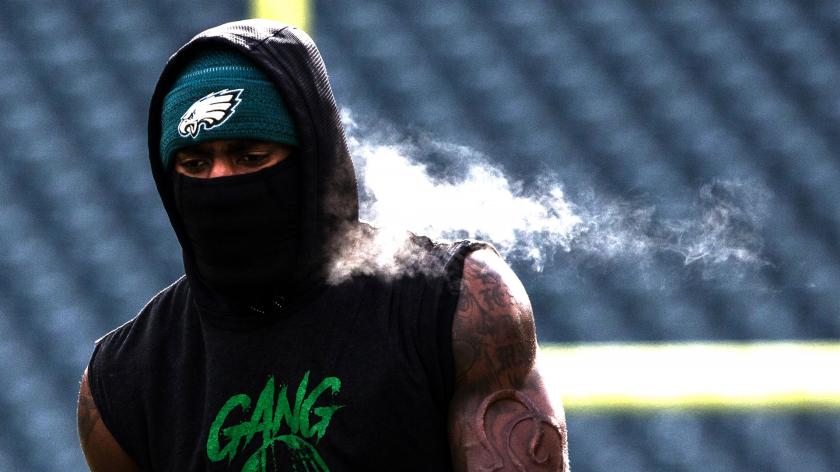Unraveling the Tragic Mystery: Exploring Deaths of Soccer Players on the Field
Amidst the cheers and adrenaline of the soccer field, a somber question echoes: ‘Why are lives being lost in the game we love?’ In a world where goals and victories dominate headlines, a darker truth emerges – soccer players are dying on the field. This investigation peels back the layers of this chilling phenomenon, uncovering the stories behind the headlines and delving into the factors that have turned the pitch into an unexpected arena of tragedy. From sudden collapses to the urgent quest for solutions, join us on a journey that confronts the shadows lurking within the world’s most beloved sport.

Credit: www.rediff.com
What is the main cause of death in football players?
Football players face the unfortunate risk of sudden cardiac arrest due to a range of heart conditions that may go unnoticed until a catastrophic event occurs. Hypertrophic cardiomyopathy, a thickening of the heart muscle, and arrhythmogenic right ventricular cardiomyopathy, where the heart’s muscle cells are replaced with fibrous or fatty tissue, are among the silent threats that can lead to fatal arrhythmias during physical exertion.
In recent years, significant efforts have been made to enhance player safety through mandatory pre-participation cardiac screenings. These screenings include electrocardiograms (ECGs) and thorough medical evaluations to identify potential heart abnormalities. These measures aim to detect underlying conditions early, reducing the likelihood of sudden cardiac events on the field.
Beyond cardiac issues, heat-related illnesses pose another risk. Football’s demanding physical nature, combined with hot weather conditions, can result in heat exhaustion and heat stroke. Proper hydration, rest breaks, and cooling measures are crucial in preventing these complications.
What Happened to the Soccer Player That Died on the Field?
The tragic incident involving the soccer player who died on the field was a heart-wrenching event that shook the sports world. During a match, the player suddenly collapsed, leaving teammates, opponents, and spectators in shock. Despite immediate medical attention from the on-site medical team, including cardiopulmonary resuscitation (CPR) and the use of automated external defibrillators (AEDs), efforts to revive the player proved futile.
An autopsy later revealed that the player suffered from a previously undiagnosed heart condition, which had gone unnoticed during routine medical examinations. This condition, coupled with the physical exertion and high-intensity nature of the match, tragically led to a cardiac arrest on the field.
The incident served as a wake-up call for the soccer community, highlighting the need for more comprehensive medical screenings and increased awareness of potential underlying health issues among players. In response to this tragedy, many clubs and organizations have since implemented stricter medical protocols, including thorough cardiac evaluations, to prevent similar incidents from occurring in the future.
The player’s untimely passing serves as a poignant reminder of the fragility of life and the importance of prioritizing athlete health and safety both on and off the field.
Why are Soccer Players Getting Heart Attacks?
There are a few reasons that soccer players may be more susceptible to heart attacks. First, the sport is very demanding on the cardiovascular system. Soccer players run an average of 7 miles per game, and sprint for about half of that time.
This puts a lot of stress on the heart and can lead to problems over time. Additionally, many soccer players are relatively young and fit, which can also contribute to cardiac issues. Finally, there is evidence that some performance-enhancing drugs (such as erythropoietin) may also increase the risk of a heart attack in athletes.
While these factors may increase the risk of a heart attack in soccer players, it’s important to remember that most people who play the sport will never experience such an event. With proper training and monitoring, soccer players can enjoy the sport without putting their hearts at undue risk.
Why Do So Many Footballers Have Heart Problems?
Football is a high-impact sport that can take a toll on a player’s body. The constant running, jumping, and tackling can put a strain on the heart and other organs. In addition, football players are often larger than the average person, carrying more weight and requiring more oxygen to fuel their bodies.
All of these factors can contribute to an increased risk of heart problems for footballers. Heart disease is the leading cause of death in the United States, so it’s not surprising that some football players would eventually succumb to this condition. In fact, several well-known NFL players have died from heart-related issues in recent years, including former Chicago Bears defensive end Cedric Benson and San Diego Chargers linebacker Junior Seau.
While the exact cause of their heart problems may never be known, it’s important for all football players to be aware of the risks and take steps to protect their health. Eating a healthy diet, exercising regularly, and getting plenty of rest are all good ways to keep your heart healthy. If you have any family history of heart disease or other health concerns, be sure to talk to your doctor before starting any type of exercise program.
Why Do Athletes Get Heart Attacks?
There are a variety of reasons why athletes may be more susceptible to heart attacks. First, intense physical activity can put added stress on the heart muscle, making it work harder and potentially leading to an attack. Second, dehydration can cause electrolyte imbalances that can lead to abnormal heart rhythms and an increased risk of heart attacks.
Third, athletes often have high levels of LDL cholesterol (the “bad” cholesterol) and low levels of HDL cholesterol (the “good” cholesterol), which is a contributing factor to heart disease. Finally, many athletes take performance-enhancing drugs like anabolic steroids, which can also increase the risk of heart attacks. While the exact incidence of heart attacks in athletes is not known, it is clear that they are more prone to them than sedentary individuals.
If you are an athlete or participate in regular strenuous exercise, it is important to be aware of the signs and symptoms of a heart attack and seek medical attention immediately if you experience any chest pain or discomfort. With early diagnosis and treatment, many athletes who suffer from a heart attack go on to make a full recovery and return to their sport.
Soccer Players Dying of Heart Attacks
We all know that professional athletes are at risk for heart attacks. They’re constantly pushing their bodies to the limit and subjecting themselves to intense physical activity. However, we tend to think of this as a problem for older athletes.
After all, they’re the ones with years of wear and tear on their bodies. Surely younger athletes are safe from such dangers, right? Wrong.
In recent years, there have been a number of young soccer players who have died from heart attacks while playing the sport they love. In many cases, these players had no prior history of cardiac problems and appeared to be in perfectly good health. So what could be causing these sudden heart attacks?
There are a few possible explanations. One is that some soccer players may be genetically predisposed to cardiac problems. Another possibility is that the intense physical exertion required during a match may trigger an attack in someone with undiagnosed cardiovascular issues.
How Many Soccer Players Have Died While Playing
Since the sport of soccer was first created, there have been a number of players who have died while playing the game. In most cases, these deaths have been caused by injuries sustained during play or from underlying health conditions that were aggravated by playing soccer. While the exact number of players who have died while playing soccer is unknown, it is believed to be in the hundreds.
One of the most notable deaths in soccer occurred in 2013 when Cameroonian player Patrick Ekeng collapsed on the field and later died in a hospital. The cause of death was determined to be cardiac arrest. Just a few months prior to Ekeng’s death, another professional player, Miklos Feher, also died from cardiac arrest while playing for Portugal’s Benfica B team.
While these deaths are certainly tragic, it’s important to keep in mind that they are relatively rare occurrences. The vast majority of people who play soccer do so without incident and enjoy a healthy and active lifestyle as a result.
Which Footballer Died in 2022
It is with great sadness that we report the death of footballer George Best. The former Manchester United and Northern Ireland star passed away on November 25th, 2022 at the age of just 59. Best was one of the first truly global footballers, his good looks and playboy lifestyle as well as his natural talent on the pitch made him a household name in the 1960s and 70s.
He scored 137 goals in 361 appearances for Manchester United, winning the European Cup with them in 1968 – a year in which he also won the Ballon d’Or. After retiring from football in 1984, Best struggled with alcoholism and had several high-profile public battles with addiction before finally getting sober in 2005. He had been receiving treatment for liver problems in recent years and passed away peacefully surrounded by family at London’s Cromwell Hospital.
Best was married twice and had three children, two of whom – Calum and Jemma – survived him. Our thoughts are with them at this difficult time.
List of Soccer Players Who Died
It is with great sadness that we must report the death of another soccer player. This time it is Brazilian striker, Ronaldo Rodrigues da Silva, who has died at the age of just 25. Ronaldo was playing for his club side Fluminense in a match against Flamengo when he collapsed on the pitch after suffering a heart attack.
He was immediately rushed to hospital but unfortunately could not be revived. This tragic news comes just days after another young player, 26-year-old Peter Biaksangzuala from India, died after suffering a spinal injury while celebrating a goal. These two deaths are a stark reminder of the danger that professional footballers face every time they take to the field.
While most players will never suffer such a fate, it is still important to be aware of the risks involved in playing the sport. We would like to express our deepest condolences to the friends and family of both Ronaldo and Peter.
Conclusion
It’s a dangerous game, and soccer players are dying on the field. Why is this happening? Is it because of the physicality of the sport? Or is there something more sinister at play? In recent years, there have been a number of deaths in soccer due to cardiac arrest. This is usually caused by an underlying heart condition that was undiagnosed prior to collapse.
In some cases, however, illegal drugs or supplements may have played a role in triggering cardiac arrest. There are a number of factors that can contribute to death on the soccer field, but it seems that Heart conditions are the leading cause. It’s important for players to get regular checkups and be aware of any underlying health conditions so they can take steps to prevent sudden death on the field.



